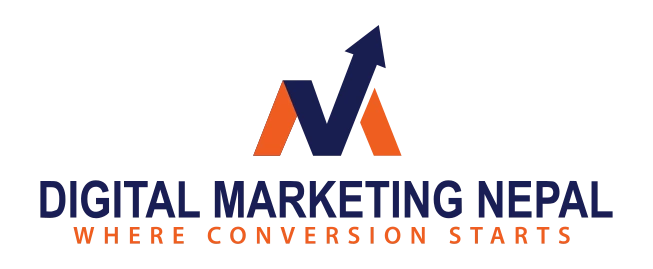Understanding the differences between SEO and PPC is essential for anyone looking to boost their online presence. While both aim to drive traffic to your website, they operate in unique ways. In this article, we’ll explore both SEO and PPC, understand their benefits, and discuss when to use each strategy effectively.
What is the Difference Between PPC and SEO?
The difference between PPC and SEO lies primarily in their approaches to attract traffic. SEO, or Search Engine Optimization, focuses on optimizing your website and content to rank higher in organic search results.
This involves techniques like on-page SEO, off-page SEO, and technical SEO to improve your website’s visibility over time.
In contrast, PPC, or Pay-Per-Click advertising, involves creating ads that appear in paid search results, like Google Ads. You pay each time someone clicks on your ad, which can lead to immediate traffic but requires a marketing budget to sustain.
Essentially, SEO is a long-term strategy, whereas PPC can generate quick results.
While SEO relies on optimizing content and targeting keywords to improve organic search rankings, PPC allows advertisers to bid on specific search terms to display their ads prominently. This means that with PPC, you can target keywords directly and control where your ads appear.
However, it’s essential to recognize that the difference between SEO and PPC is not just in their execution but also in their cost structures and timeframes for results. SEO may take time to build momentum, while PPC can deliver instant visibility. Understanding these differences helps businesses choose the right approach based on their goals and resources.
When you can use PPC?
PPC is particularly useful when you need immediate visibility and traffic to your website. If you have a new product launch or a time-sensitive promotion, using PPC ads can quickly generate buzz and drive traffic to your landing page.
Additionally, if your business operates in a highly competitive industry, PPC allows you to rank higher in search engine results, even if your SEO efforts are still underway.
It’s also beneficial for targeting specific demographics or geographic areas, making it an excellent choice for local businesses aiming to attract nearby customers.
Moreover, PPC platforms like Google Ads provide valuable insights into user behavior and keyword performance. This data can help refine your digital marketing strategy and inform future campaigns.
In scenarios where organic traffic is slow to build or if you’re entering a new market, using PPC can bridge the gap. By analyzing the results of your PPC campaign, you can make informed decisions about your marketing budget and optimize your approach of moving forward.
How to Create an Effective PPC Campaign?
Creating an effective PPC campaign requires careful planning and execution. Following these steps may be handy;
- Start by conducting thorough keyword research to identify the search terms your target audience uses.
- Use these keywords to craft compelling ad copy that speaks directly to their needs. It’s also important to design a captivating landing page that aligns with your ad’s message, as this can significantly impact conversion rates.
- Ensure that your landing page is optimized for both user experience and SEO, incorporating relevant keywords and clear calls to action.
- Setting a realistic marketing budget is crucial. Determine how much you’re willing to spend per click and adjust your bids accordingly.
- Monitor the performance of your PPC campaign regularly, analyzing metrics such as click-through rates and conversion rates. This data will help you identify what’s working and what needs adjustment.
- By continually optimizing your PPC ads and landing pages based on performance insights, you can maximize your return on investment and drive more traffic to your website.
What Budget Should You Allocate for PPC?
Determining the right budget for your PPC campaign depends on various factors, including your industry, competition, and overall marketing goals. A good starting point is to assess your overall marketing budget and allocate a portion specifically for PPC advertising.
Many businesses allocate around 20-30% of their digital marketing budget to PPC, but this can vary based on your unique circumstances. Consider the average cost-per-click for your target keywords, as this will impact how much you can achieve with your budget.
It’s also important to factor in your goals. If you’re looking to drive immediate traffic or sales, you may need to invest more upfront to gain traction.
On the other hand, if you’re testing the results, starting with a smaller budget can help you gather data and refine your approach. As your campaign progresses, continuously monitor performance and adjust your budget based on what’s working.
This flexible approach allows you to maximize your PPC marketing efforts while ensuring you’re spending effectively.
When you can use SEO?
SEO is an ideal strategy when you aim for long-term growth and sustainability in your online presence. Unlike PPC, which delivers immediate results but requires ongoing investment, SEO focuses on optimizing your website to rank higher in organic search results over time.
If your business has a longer sales cycle or is not tied to immediate promotions, investing in SEO can build a solid foundation for attracting organic traffic. This is particularly effective for businesses that offer valuable content or resources, as users often rely on search engines for information before making purchasing decisions.
Moreover, SEO is beneficial in enhancing brand credibility and trust. When your website ranks higher in organic results, users are more likely to perceive your brand as authoritative and trustworthy.
This can lead to increased organic traffic and better engagement with your audience. If you have the patience and resources to invest in creating quality content and optimizing your site, leveraging SEO can yield significant long-term benefits, making it a smart choice for businesses focused on sustainable growth.
How Does SEO Impact Organic Traffic?
SEO plays a crucial role in driving organic traffic to your website. By optimizing your site for search engines, you increase the likelihood of ranking higher in search results, which leads to more visibility.
The more visible your website is, the more likely users will click through to explore your content. Effective SEO strategies, including keyword targeting, on-page SEO, and high-quality content creation, work together to attract users who are genuinely interested in your products or services, ultimately driving organic traffic.
Moreover, SEO fosters a better user experience, which is a significant factor in retaining visitors.
By ensuring your website is easy to navigate, mobile-friendly, and fast-loading, you’re more likely to keep users engaged and encourage them to return. This positive experience not only enhances organic traffic but can also lead to higher conversion rates.
In essence, effective SEO not only boosts visibility and traffic but also builds a loyal audience that trusts your brand and is more likely to convert.
What is a Good SEO Strategy for Beginners?
For beginners venturing into SEO, starting with a solid strategy is key to success.
- Focus on conducting thorough keyword research to identify target keywords relevant to your business. Utilize tools like Google Keyword Planner to find keywords with good search volume and manageable competition.
- Once you have a list of keywords, incorporate them into your website’s content, ensuring they flow naturally within your text. This practice is known as on-page SEO and is essential for improving your rankings in search engine result pages.
- Prioritize creating high-quality content that provides value to your audience. Blog posts, articles, and guides that answer common questions or address user needs can help establish your authority and attract organic traffic.
- Don’t forget about technical SEO—ensure your website is optimized for speed, mobile use, and has a clear site structure.
- Consider off-page SEO techniques, such as building backlinks from reputable sites, which can further boost your rankings. By following these strategies, beginners can effectively navigate the world of SEO and lay the groundwork for long-term success.
Best time to use duo combo PPC and SEO
Using a combination of PPC and SEO can be a powerful strategy for maximizing online visibility and traffic. The best time to employ both tactics is when you want to achieve immediate results while building a sustainable online presence.
For example, if you’re launching a new product, utilizing PPC ads can drive instant traffic to your website, generating buzz and sales.
Simultaneously, investing in SEO ensures that your website continues to rank well in organic search results over time, leading to ongoing traffic without the need for constant ad spending.
This duo combo is particularly effective for businesses looking to dominate competitive search terms. While your PPC ads capture immediate attention, your SEO efforts work behind the scenes to improve your organic rankings.
This dual approach allows you to cover all bases, ensuring that your brand is visible to users regardless of how they choose to search. By aligning your PPC and SEO strategies, you can create a united digital marketing strategy that leverages the strengths of both methods to maximize traffic and conversions.
How to Decide Between SEO or PPC for Your Business?
Deciding between SEO or PPC for your business depends on several factors, including your goals, budget, and timeline. If you need immediate results and have the budget to support ongoing advertising costs, PPC may be the better option.
It allows you to quickly generate traffic and leads, making it ideal for time-sensitive promotions or new product launches.
Conversely, if you’re looking for long-term growth and have the patience to invest in building your online presence, SEO is the way to go.
It may take time to see results, but the benefits can be lasting.
Additionally, consider your industry and competition. In highly competitive markets, relying solely on SEO may not yield quick results, and PPC can provide the visibility needed to compete.
On the other hand, if your niche has lower competition, focusing on SEO can help you dominate organic search results and build a loyal audience. Ultimately, evaluating your specific business needs, goals, and resources will guide you in deciding whether to pursue SEO or PPC as your primary marketing strategy.
How to Measure Success in SEO vs PPC?
Measuring success in SEO vs. PPC involves different metrics and approaches. For SEO, focus on organic traffic, search rankings, and engagement metrics such as bounce rate and time on site.
Tools like Google Analytics can help track these metrics, providing insights into how well your SEO strategies are performing over time. Additionally, monitoring the number of backlinks and overall domain authority can indicate the effectiveness of your SEO efforts.
On the other hand, for PPC, success is often measured by metrics like click-through rate (CTR), conversion rate, and return on ad spend (ROAS).
These metrics provide insights into how well your ads are performing and whether they are generating the desired results. Analyzing your cost-per-click (CPC) and making adjustments based on performance can enhance your PPC campaigns.
By comparing these metrics, you can evaluate the effectiveness of your SEO and PPC strategies, allowing you to optimize your digital marketing efforts accordingly.
Conclusion
While SEO and SEM are valuable methods for increasing your online exposure and driving visitors to your website, they differ significantly in strategy, cost, and performance.
SEO is the way to go if you want to establish your brand over time and make a long-term investment.
However, if you need to generate immediate traffic to your website and have a large budget, PPC will be a better alternative for you. Finally, it boils down to your personal preferences.
Now that you understand these facts about SEO vs. PPC. You can choose what you need based on the goal of your website.
If you need help with both strategies, you can contact a Digital Marketing Company in Nepal. We have a team of experts who provide SEO services in Nepal along with Pay Per Click services.





0 Comments